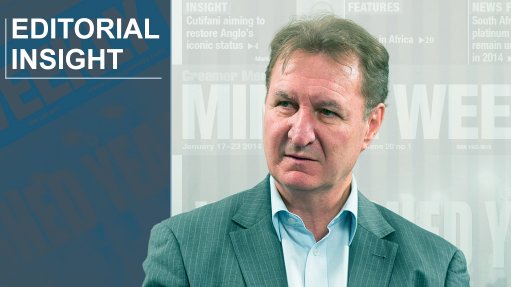
The mining industry has played a key role in South Africa’s economic development for more than 140 years, which has transformed South Africa into the most industrialised country in Africa, and it remains a major factor in the economy, with significant contributions to employment numbers and export earnings. It attracts foreign direct investment, creates gross domestic product and contributes to proper transformation in the economy, the Chamber of Mines adds.
Now there are many who want the industry to go much further in the decades ahead and one of them is veteran research commentator Dr RE (Robbie) Robinson, who wants jobs created on a mammoth scale plus dramatically improved primary and secondary education – with the mining industry playing a significant role.
On the future of the mines themselves, Robinson believes gold and platinum mines can be expanded in the short term by using a proven low-cost and safe, selected blasting mining technique and, in the longer term, using AngloGold Ashanti’s new raiseboring technology.
On surface, he envisages mining clusters with education and income-generating opportunities by way of agricultural small lot activities on a self-financing basis using high-efficiency hydroponic fertigation methods extensively, including on slimes dams.
He proposes the production of bioethanol as a main product and calculates that one mine-linked family would be capable of producing three tons of ethanol fuel a year, or the equivalent of 15 barrels of oil.
He envisages schools employing computerised digital education and pupils interacting with mining activities and research.
“Such pathfinder work by the mining industry is by far the most rapidly effective strategy with the highest probability of success for a solution to the overall national problem,” says Robinson.
South Africans are dreaming up new things in the hope of creating new forward movement for mining, which, as the chamber rightly points out, continues to be “the flywheel of the South African economy”.
The Framework Agreement for a Sustainable Mining Industry arrived at last year by the who’s who of mining, and even attended by the Association of Mineworkers and Construction Union, shows a groundswell of common thinking and willingness to innovate.
Signatories recognised that the mining industry is central to South Africa’s economy and job creation and that urgent steps are needed to strengthen the sector. The parties committed to implementing new measures that bring about lasting change.
Still ahead is the tough part of actually walking that talk.